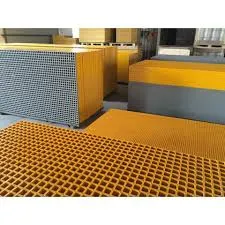
-
 Afrikaans
Afrikaans -
 Albanian
Albanian -
 Amharic
Amharic -
 Arabic
Arabic -
 Armenian
Armenian -
 Azerbaijani
Azerbaijani -
 Basque
Basque -
 Belarusian
Belarusian -
 Bengali
Bengali -
 Bosnian
Bosnian -
 Bulgarian
Bulgarian -
 Catalan
Catalan -
 Cebuano
Cebuano -
 China
China -
 China (Taiwan)
China (Taiwan) -
 Corsican
Corsican -
 Croatian
Croatian -
 Czech
Czech -
 Danish
Danish -
 Dutch
Dutch -
 English
English -
 Esperanto
Esperanto -
 Estonian
Estonian -
 Finnish
Finnish -
 French
French -
 Frisian
Frisian -
 Galician
Galician -
 Georgian
Georgian -
 German
German -
 Greek
Greek -
 Gujarati
Gujarati -
 Haitian Creole
Haitian Creole -
 hausa
hausa -
 hawaiian
hawaiian -
 Hebrew
Hebrew -
 Hindi
Hindi -
 Miao
Miao -
 Hungarian
Hungarian -
 Icelandic
Icelandic -
 igbo
igbo -
 Indonesian
Indonesian -
 irish
irish -
 Italian
Italian -
 Japanese
Japanese -
 Javanese
Javanese -
 Kannada
Kannada -
 kazakh
kazakh -
 Khmer
Khmer -
 Rwandese
Rwandese -
 Korean
Korean -
 Kurdish
Kurdish -
 Kyrgyz
Kyrgyz -
 Lao
Lao -
 Latin
Latin -
 Latvian
Latvian -
 Lithuanian
Lithuanian -
 Luxembourgish
Luxembourgish -
 Macedonian
Macedonian -
 Malgashi
Malgashi -
 Malay
Malay -
 Malayalam
Malayalam -
 Maltese
Maltese -
 Maori
Maori -
 Marathi
Marathi -
 Mongolian
Mongolian -
 Myanmar
Myanmar -
 Nepali
Nepali -
 Norwegian
Norwegian -
 Norwegian
Norwegian -
 Occitan
Occitan -
 Pashto
Pashto -
 Persian
Persian -
 Polish
Polish -
 Portuguese
Portuguese -
 Punjabi
Punjabi -
 Romanian
Romanian -
 Russian
Russian -
 Samoan
Samoan -
 Scottish Gaelic
Scottish Gaelic -
 Serbian
Serbian -
 Sesotho
Sesotho -
 Shona
Shona -
 Sindhi
Sindhi -
 Sinhala
Sinhala -
 Slovak
Slovak -
 Slovenian
Slovenian -
 Somali
Somali -
 Spanish
Spanish -
 Sundanese
Sundanese -
 Swahili
Swahili -
 Swedish
Swedish -
 Tagalog
Tagalog -
 Tajik
Tajik -
 Tamil
Tamil -
 Tatar
Tatar -
 Telugu
Telugu -
 Thai
Thai -
 Turkish
Turkish -
 Turkmen
Turkmen -
 Ukrainian
Ukrainian -
 Urdu
Urdu -
 Uighur
Uighur -
 Uzbek
Uzbek -
 Vietnamese
Vietnamese -
 Welsh
Welsh -
 Bantu
Bantu -
 Yiddish
Yiddish -
 Yoruba
Yoruba -
 Zulu
Zulu
frp trough cover
Understanding FRP Trough Covers Advantages and Applications
Fiberglass Reinforced Plastic (FRP) trough covers have emerged as an innovative solution across various industries, providing significant benefits in terms of durability, lightweight design, and resistance to environmental factors. This article explores the characteristics, advantages, and applications of FRP trough covers, elucidating why they are increasingly becoming the material of choice for many applications.
What are FRP Trough Covers?
FRP trough covers are protective coverings made from a composite material that combines fiberglass and plastic. This blend creates a lightweight yet robust structure capable of withstanding challenging conditions. The manufacturing process typically involves a method called pultrusion, where continuous strands of fiberglass are drawn through resin and then cured, resulting in a solid, durable product.
Advantages of FRP Trough Covers
1. Durability One of the standout features of FRP trough covers is their exceptional durability. They resist corrosion, rust, and chemical degradation, making them ideal for use in harsh environments such as wastewater treatment plants and chemical processing facilities. Compared to traditional materials, such as metal and wood, FRP offers a longer lifespan, reducing the need for frequent replacements.
2. Lightweight Unlike metal covers, FRP trough covers are significantly lighter while maintaining strength and structural integrity. This characteristic simplifies installation and maintenance processes, leading to reduced labor costs and time efficiency.
3. Non-conductive FRP is a non-conductive material, which provides an added layer of safety in applications dealing with electricity. This non-conductivity is particularly beneficial in industrial settings, where electrical hazards are a concern.
4. Customizability FRP trough covers can be tailored to meet specific requirements. They can be manufactured in various shapes, sizes, and colors, allowing businesses to customize their products according to their design preferences and functional needs.
frp trough cover

5. Ease of Maintenance Cleaning and upkeep of FRP trough covers are relatively simple. Unlike other materials that may require special cleaning agents or processes, FRP can typically be cleaned with standard cleaning solutions, ensuring a low-cost maintenance routine.
Applications of FRP Trough Covers
The versatility of FRP trough covers enables their use in various industries. Some common applications include
- Water and Wastewater Treatment In both municipal and industrial settings, FRP trough covers protect treatment facilities from debris and harsh environmental conditions while preventing harmful substances from contaminating the water supply.
- Chemical Processing The chemical resistance of FRP makes it an ideal choice for chemical storage areas, ensuring safe containment of potentially dangerous substances.
- Manufacturing and Production Many manufacturing facilities use FRP trough covers in production lines where durable and lightweight covers can improve workflow efficiency.
- Agriculture In agricultural settings, these covers help in managing water flow in irrigation systems, protecting crops from excessive water runoff while ensuring effective water conservation.
Conclusion
In conclusion, FRP trough covers represent a modern solution for industries seeking reliable, durable, and lightweight coverings. Their unique properties, coupled with ease of maintenance and customization options, empower various sectors to adopt this innovative material. As industries continue to prioritize efficiency and safety, the demand for FRP trough covers is expected to grow, solidifying their presence in manufacturing, chemical processing, and water treatment applications.









